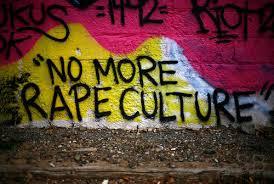After spending some time abroad, I returned home to find that Robin Thicke’s summer hit Blurred Lines was a widespread phenomenon, gracing the radio waves of top 40 stations across the nation. With a catchy tune, nice beat, and memorable lines, more than once I caught myself singing along without quite considering the words I was saying – until law students from Auckland University remade the song into a feminist anthem (warning: adult content).
Adelaide Dunn, Olivia Lubbock, and Zoe Ellwood tag-team to unveil the damage inflicted by the overtly misogynistic lines normalizing sexual advances despite “blurred lines” of consent, with self-assured men chanting, “I know you want it, but you’re a good girl.”
As reported in the New Zealand Herald article “Law Students Blur the Lines in Online Hit,” Thicke has responded to allegations of misogyny by noting “the song was about breaking taboos.” Yet Dunn, Lubbock, and Ellwood retorted that the “attitude of the whole thing came across as being quite arrogant, especially with the issue of consent.”
Project Unbreakable (from whom we’ve re-printed pictures in this blog post) is an organization founded to help sexual assault survivors in their healing process by photographing themselves with quotes taken from their abusers in order to break the silence and shame surrounding their victimization. Some of these photographs were recently published in conjunction with the University of Minnesota’s The Society Pages in an article titled “From the Mouths of Rapists: The Lyrics of Robin Thicke’s Blurred Lines.” The parallels to Thicke’s lyrics are unmistakable. Echoing the lyrics, survivors were pictured with phrases such as, “I know you want it,” “Good Girl,” “We both know you don’t really mean it when you say no,” and “Thank you for making me feel like a Man.”



 Being introduced to the concept of rape culture changed everything. It changed my understanding of television, music, jokes, laws, and even language. When asked to write a primer for rape culture, I assumed it would be a simple task. Surely, I had been using the term for years, since taking a Women’s Studies 101 course at UNC. It took the better part of a week, however, to even start this overwhelming blog post.
Being introduced to the concept of rape culture changed everything. It changed my understanding of television, music, jokes, laws, and even language. When asked to write a primer for rape culture, I assumed it would be a simple task. Surely, I had been using the term for years, since taking a Women’s Studies 101 course at UNC. It took the better part of a week, however, to even start this overwhelming blog post. It’s time to dive a bit deeper into the nuances of sexual violence and how it differentially affects certain groups of people. Although I’ve been involved in the anti-violence movement for about 5 years, something you may not know is that I’ve also done a lot of work to support folks in our community who have developmental and/or intellectual disabilities. Having the opportunity to work with folks with an array of different levels of ability, both cognitively and physically, has only increased my passion for raising awareness about the intersection of sexual violence and disability status. Based on extensive research, we know that people with disabilities are at heightened risk to be sexually victimized. I hope to highlight some of what we know about this issue.
It’s time to dive a bit deeper into the nuances of sexual violence and how it differentially affects certain groups of people. Although I’ve been involved in the anti-violence movement for about 5 years, something you may not know is that I’ve also done a lot of work to support folks in our community who have developmental and/or intellectual disabilities. Having the opportunity to work with folks with an array of different levels of ability, both cognitively and physically, has only increased my passion for raising awareness about the intersection of sexual violence and disability status. Based on extensive research, we know that people with disabilities are at heightened risk to be sexually victimized. I hope to highlight some of what we know about this issue.

 The
The